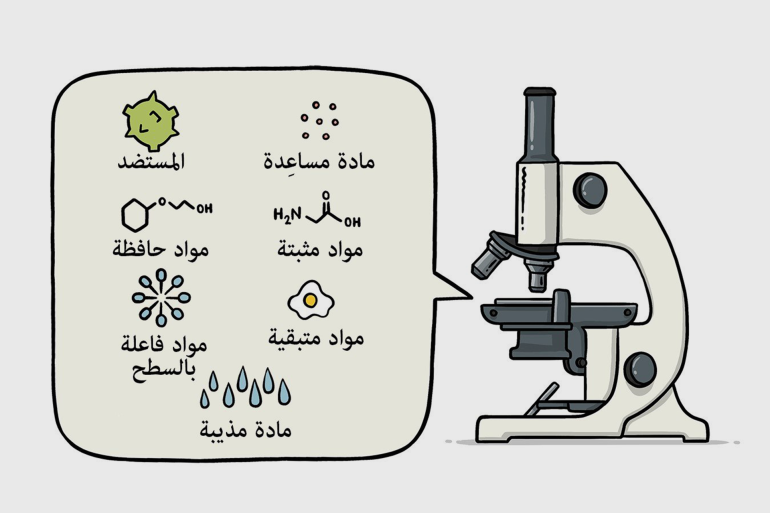Cuba has launched a national campaign to vaccinate against the emerging coronavirus "Covid-19" for children and adolescents between the ages of two and 18 years, what vaccines are used in it?
Although other countries such as China and Venezuela have announced their intention to vaccinate children, Cuba, which is facing an increase in the number of HIV infections, is the first to take this step, according to Agence France-Presse.
What vaccines are used?
The Abdala vaccine, whose scientific name is CIGB-66, is developed by the Center for Genetic Engineering and Biotechnology in Cuba, according to the “Covid19 trackvaccines” website. .
The Soberana vaccine, whose scientific name is FINLAY-FR-1, was developed by the Instituto Finlay de Vacunas Cuba.
How do the two vaccines work?
The Abdullah and Sopirana vaccines work with the protein subunit technology, in which purified pieces of a pathogen are used to stimulate the immune response, rather than injecting the entire pathogen, according to the Gavi, the Vaccine Alliance website.
Specific pieces of the pathogen are specially selected for their ability to stimulate immune cells.
Since these parts are not capable of causing disease, vaccines are considered very safe.
Among the advantages of the protein sub-vaccines:
Uses well-established technology
Suitable for people with weakened immune systems
There are no live ingredients, so there is no risk that the vaccine will cause disease
Who will receive the vaccination?
The first phase will include adolescents aged 12 years and over, and will later be expanded to include, from September 15, children aged between two and 11 years.
The vaccination will allow a return to school, as schools in the country have been closed since March 2020 and only opened for a short period of time, for a few weeks, at the end of the year, before reopening in January.
The Cuban government decided not to reopen schools until all children in the country were vaccinated.
Once the campaign ends, the government plans to reopen educational institutions in phases, in October and November.
Vaccine components (WHO)
Corona vaccines and children
There is debate about the advantages of vaccinating children without underlying conditions, because the chances of getting severely ill from COVID-19 are very low, and this must be weighed against the potential side effects of the vaccine.
For example, the European Medicines Agency (EMA) approved the use of the Pfizer vaccine for children aged 12 to 15 years in May, the first COVID-19 vaccine to be granted such approval in the European Union, writes Ian Smith in Euronews.
The authorization was based on a study of 2,259 children in the age group, which showed that their immune response was similar to that of the 16-25 age group.
None of the children who received the COVID-19 vaccine became infected compared to the 16 who actually contracted COVID-19 after receiving a placebo.
The European Medicines Agency approved Moderna for use in the 12-17 age group the following month.
This time around, a study of 3,732 children in this particular age group showed that none of those who received the vaccine developed COVID-19 compared to 4 in the placebo group.
Although the European Medicines Agency acknowledged that the limited numbers in both studies mean they cannot detect rare side effects, it concluded that the benefits of vaccines for this younger age group outweigh any potential negatives.
There has also been some concern about cases of myocarditis and pericarditis after administration of messenger RNA (mRNA) vaccines.
Although vaccines for children aged 12-18 have been approved by the European Medicines Organization over the past two months, not all EU governments or health agencies have followed suit.
Many countries have begun to open vaccination programs for children over 12 years of age.
For example, in Germany, the vaccines were initially recommended only for children with underlying conditions, but following the spread of the Delta strain, it was decided on August 16 to introduce a vaccine for all children over 12 years old.
Germany
The expert body that advises the German government on vaccines - its name is the Standing Committee on Vaccination STIKO - said in a statement that the decision came after examining new safety data, especially from the United States, after vaccinating about 10 million adolescents.
She added that given the "current state of knowledge, the benefits of vaccination outweigh the risks of the vaccine's rare side effects."
There have been concerns about myocarditis, a very rare inflammation of the heart muscle observed in the course of vaccination, especially in young vaccinated males.
However, the German commission said most of these people went to hospital and were successfully treated.
They also emphasized the overall risk of COVID-19 itself to heart health.
As for France, it was one of the first countries to open the vaccination to those over 12 years old, on June 15, and more than 56 percent of people between the ages of 12 and 17 years received at least one dose of the vaccine, according to figures as of August 19. , while 32.4% were fully vaccinated.

